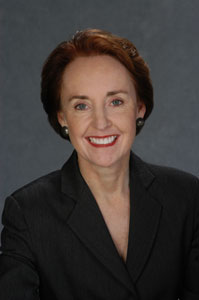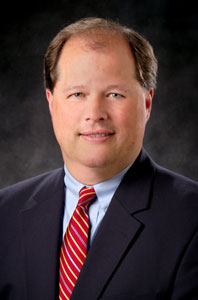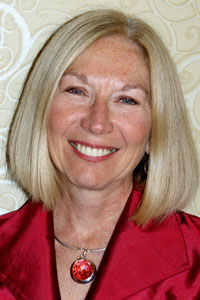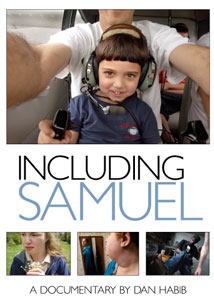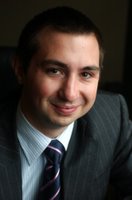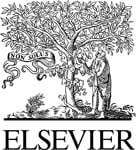2008 Plenary Sessions
November 1, 2008
Where do we go from here? Advocacy for Research after the Election Mary Woolley, Research!America Monday, 5:30-7:00pm Mary Woolley is the president of Research!America, a not-for-profit, membership supported grassroots public education and advocacy organization committed to making medical and health research, including research to prevent disease and disability and to promote health, a much higher national priority. Under her leadership, Research!America's membership has more than quadrupled as it has earned the attention and respect of research, media, and community leaders with its signature public opinion surveys and advocacy resource materials. Woolley is an elected member of the Institute of Medicine and a fellow of the American Association for the Advancement of Science (AAAS). She serves on several boards and committees, including the Institute of Medicine Health Sciences Policy Board, the National Council for Johns Hopkins Nursing, and the Board of Overseers of the Harvard School of Public Health. She is a founding member of the Board of Associates of the Whitehead Institute for Biomedical Research. Woolley has served as president of the Association of Independent Research Institutes (AIRI), as editor of the Journal of the Society of Research Administrators, as a reviewer for the National Institutes of Health and National Science Foundation and as a consultant to several research organizations. Woolley has a 30-year editorial and publication history on science advocacy and research related topics. Her op-eds and letters to the editor are published in newspapers and magazines from coast to coast and she has been published in Science, Nature, Issues in Science and Technology, The New England Journal of Medicine, The Journal of the American Medical Association, The Scientist, and other research-oriented periodicals. She is a sought-after speaker and is frequently interviewed by science, news and policy journalists.
For her work on behalf of medical research, she has been honored as a Woman of Vision by the American Committee for the Weizmann Institute of Science and is a recipient of the Distinguished Contribution to Research Administration Award from the Society for Research Administrators. She has received the American Hospital Association Silver Touchstone Award for Public Affairs Programming, the Columbia University College of Physicians and Surgeons Dean's Award for Distinguished Service, the Federation of American Societies for Experimental Biology Special Award for Science Advocacy, the Friends of the National Institute for Nursing Research Health Advocacy Award and the Awareness and Advocacy Award from the Clinical Research Forum. Woolley became administrator of the Medical Research Institute of San Francisco in 1981, and in 1986 was named the Institute's executive director and CEO. Woolley has served as president and CEO of Research!America since 1990. A Public Health Response to Disability in America Dr. Edwin Trevathan, Director: National Center on Birth Defects and Developmental Disabilities, Centers for Disease Control and Prevention Dr. Gloria Krahn, Director: Division of Human Development and Disability at the National Center on Birth Defects and Developmental Disabilities at the Centers for Disease Control and Prevention Tuesday, 9:00-10:00am
About Edwin Trevathan
Edwin Trevathan, MD, MPH, serves as the Director of the National Center on Birth Defects and Developmental Disabilities (NCBDDD) at the Centers for Disease Control and Prevention (CDC). The NCBDDD seeks to improve the lives of people with congenital and genetic disorders, disabilities, neurodevelopmental disorders, and blood disorders. The NCBDDD's work includes identifying the causes of and preventing birth defects, such as brain and spinal cord malformations (e.g., spina bifida) and congenital heart disease--both major causes of lifelong morbidity and infant mortality. The NCBDDD also performs monitoring of rates of neurodevelopmental disabilities such as autism and cerebral palsy, and performs public health research aimed at identifying preventable risk factors for developing these and other disabilities. NCBDDD with its partners throughout the U.S., promotes the health and well-being among people of all ages with disabilities. NCBDDD's Division of Blood Disorders prevents complications of bleeding and clotting disorders, and works to improve the lives of people with hereditary blood disorders. Prior to returning to CDC, Dr. Trevathan was Professor of Neurology and Pediatrics and Director of the Division of Pediatric and Developmental Neurology at Washington University in St. Louis. He also served as the Neurologist-in-Chief at St. Louis Children's Hospital. In addition to his experience at Washington University in St. Louis, he has also served as a partner in a child neurology private practice group in Atlanta, and was a professor and Associate Director for Clinical Services in the Department of Neurology at University of Kentucky College of Medicine. Dr. Trevathan received his MD and MPH at Emory University and completed his residency training at Yale University in pediatrics, and at Massachusetts General Hospital in neurology and child neurology. He was an epilepsy and neurophysiology fellow at Boston Children's Hospital. Dr. Trevathan worked at CDC from 1987 to 1989 as an Epidemic Intelligence Service (EIS) Officer in birth defects and developmental disabilities. Dr. Trevathan has conducted epidemiologic studies of childhood epilepsy and developmental disabilities, has directed multi-center clinical trials, and has published in clinical pediatric neurology, epilepsy, and neurodevelopmental disabilities. He serves on the Editorial Board of Neurology, is a regular reviewer for several other journals including Pediatrics and The Lancet, and has lectured nationally and internationally. His is currently Counselor for the Professors of Child Neurology, and serves on numerous national committees related to child health, neurological and developmental disorders, and public health. He is board-certified in pediatrics, neurology with special qualification in child neurology, and in clinical neurophysiology. His academic appointments include Adjunct Professor of Epidemiology at the Rollins School of Public Health, Emory University, and Adjunct Professor of Neurology at Washington University in St. Louis.
About Gloria Krahn Dr. Gloria Krahn is the Director of the Division of Human Development and Disability at the National Center on Birth Defects and Developmental Disabilities (NCBDD) at the Centers for Disease Control and Prevention (CDC). Prior to joining the NCBDDD, she served as the Director of Oregon Institute on Disability & Development UCEDD & LEND, Professor of Pediatrics and Public Health & Preventive Medicine at Oregon Health & Science University and the Associate Director of the Child Development and Rehabilitation Center, Oregon Health & Science University. Dr. Krahn received her PhD from the University of Manitoba in 1980 and completed her Postdoctoral residency in Medical Psychology at Oregon Health & Science University from 1980-82. She received her MPH from the University of California at Berkeley in 1994. In the past, she has served as the president of AUCD, chair of APHA's Disability Section, and vice-chair of the National Association of RRTCs.
Dan Habib, Filmmaker in Residence at the Institute on Disability at the University of New Hampshire Tuesday, 4:00-5:30pm Photojournalist Dan Habib rarely thought about the inclusion of children with disabilities before he had his son Samuel. Now he thinks about inclusion every day. Habib documented his family's efforts to include Samuel in every facet of their lives, a journey that transforms each of them. Including Samuel also chronicles the lives of four other people with disabilities including autism, schizophrenia and cerebral palsy. Habib, who narrates the film, said creating Including Samuel forced him to face his own prejudices head-on. 'When I saw people who didn't look like me, or talk like me, you know what crept into my head? I often saw them as less smart, less capable, and not worth getting to know. Is that how the world would see Samuel?'
About Dan Habib
Dan Habib is the director, producer and cinematographer of the new documentary, Including Samuel. The film won the 2007 Positive Images in Media award from TASH, an international group committed to the full inclusion of people with disabilities. The film was named "Best Documentary" at the 2007 Somewhat North of Boston Film Festival, and has been featured on NPR's All Things Considered, and in the Washington Post and the Boston Globe. Exceptional Parent Magazine said "Including Samuel is a must see film." Habib is Filmmaker in Residence at the Institute on Disability at the University of New Hampshire, an AUCD member UCEDD and LEND. Until joining UNH in April of 2008, Habib was the photography editor of the Concord Monitor since 1995. In 2006 and 2008 he was named the national Photography Editor of the Year for papers under 100,000 circulation. He was a staff photographer with the Monitor from 1988-1992. Between his stints at the Monitor, Habib freelanced and created a multi-media documentary project titled "Teen Sexuality in a Culture of Confusion" (www.danhabib.com). His freelance work, including extensive documentary work in China, has appeared in numerous publications, including Time, Newsweek, Yankee, Life, Boston Magazine, Mother Jones, and the New York Times. Habib has been named New Hampshire Photographer of the Year six times. He has been a judge of Pulitzer Prizes, Pictures of the Year, Best of Photojournalism and White House News Photographer's Association. He was one of 10 young photojournalists from around the world chosen for the 1995 World Press Masterclass in Amsterdam. Habib and his wife, Betsy, live in Concord, New Hampshire, with their sons Isaiah, 11, and Samuel, 8.
Access the official website of Including Samuel for more information and to view a trailer of the film. Plenary: 2008 Election Outcome: Future Direction of Disability Policy Nathan Gonzales, Political Editor: The Rothenberg Political Report Marty Ford, Chair: Consortium for Citizens with Disabilities Julio Abreu, Senior Director of Government Affairs: Mental Health America (invited) Moderator: William Kiernan, PhD, Director: Institute for Community Inclusion, UMass Boston UCEDD & LEND Wednesday, 10:30-12:30pm During this plenary, Mr. Gonzales will discuss the November 4th Presidential and Congressional Election outcome, and Ms. Ford will discuss the disability community's agenda as well as prospects for pursuing that agenda following the election. About Nathan Gonzales
Nathan L. Gonzales is political editor of The Rothenberg Political Report, a non-partisan political newsletter covering U.S. House, Senate and gubernatorial campaigns, Presidential politics and political developments. He has been with the Report since June 2001. Nathan is also a Contributing Writer for Roll Call, the Capitol Hill newspaper. Since 2002, Nathan has worked as an off-air consultant for ABC NEWS on their Election Night Decision Desk. Previously, he worked for CNN as both unit coordinator in the allpolitics.com unit and later associate producer for CNN's "Capital Gang." Nathan, an Oregon native, holds a M.A. from the George Washington University (Washington, DC), a B.A. from Vanguard University (Costa Mesa, California), and has interned in the White House Press Office. He is married with one child and lives in Washington, D.C.
About Marty Ford Marty Ford is the Director of Legal Advocacy for The Arc and UCP Disability Policy Collaboration. She has over 23 years of experience in federal public policy issues affecting people with disabilities. Ms. Ford represents both The Arc of the United States and United Cerebral Palsy on Capitol Hill and in the federal agencies on issues affecting people with disabilities in long term services and supports (including Medicaid), the Supplemental Security Income program, Social Security disability issues, and immigration and naturalization issues. She is currently the Chair of the Consortium for Citizens with Disabilities (CCD), a coalition of over 100 national organizations working on federal disability policy issues. She also serves as Co-Chair of the CCD Task Forces on Social Security and on Long Term Services and Supports. She is a member of the National Academy of Social Insurance and the American Bar Association. She received her JD from the George Washington University National Law Center, her MS from Pratt Institute, and her BA from the University of Virginia. During her career, Ms. Ford has helped to develop and pass an impressive array of legislation to help improve the quality of life for millions of individuals with disabilities and their families including: the Community Living Arrangements Act, Katie Beckett waiver, Ticket to Work and Work Incentives Improvement Act, Lifespan Respite Care Act, and numerous amendments to Medicaid that resulted in the expansion of home and community based services and supports. She was an early advocate to end the institutional bias in Medicaid dating back to work on the Chafee bill and continuing through more recent efforts such as MiCASSA and the CLASS Act. Her contributions to the successful enactment of the Money Follows the Person Act were, in her usual style, behind the scenes but significant. Ms. Ford's work has included a long list of accomplishments, including efforts to stop so-called reforms that would have had detrimental or disastrous results for people with disabilities. During the debates about privatizing Social Security and reforming Medicaid, Ms. Ford was a prominent spokesperson about the potential impact of proposed changes in both programs on people with disabilities. To help educate the public and policymakers, she testified and appeared at numerous conferences and public forums to suggest ways to address the long-term fiscal issues facing each program without cutting benefits for people with disabilities. Over ten years ago, she worked tirelessly to educate members of Congress about the devastating impact of proposed changes in children's SSI and helped to run a national grassroots effort that preserved the program for families. About Julio Abreu Julio C. Abreu is the Senior Director of Government Affairs for Mental Health America. He is also the Co-Chair of the Coalition on Health Funding and a member of the CCD Fiscal Policy Task Force. More Conference Information
|
|
|
